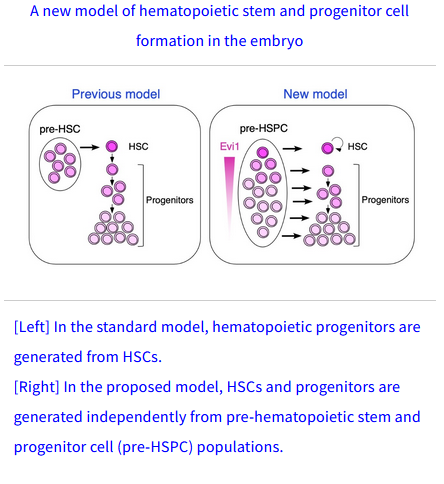- HOME
- News & Events
- Publications
- 【Publications】Independent orgins of fetal liver haematopoietic stem and progenitor cells
Publications
【Publications】Independent orgins of fetal liver haematopoietic stem and progenitor cells
September 27 2022
Lab: Toshio Suda
Paper Information
Title:
Independent orgins of fetal liver haematopoietic stem and progenitor cells
Tomomasa Yokomizo, Takako Ideue, Saori Morino-Koga, Cheng Yong Tham, Tomohiko Sato, Naoki Takeda, Yohiaki Kubota, Mineo Kurowaka, Norio Komatsu, Minetaro Ogawa, Kimi Araki, Motomi Osato & Toshio Suda
Nature 609, pages 779-784 (2022) doi:10.1038/s41586-022-05203-0
Embryo blood cells are stem cell-independent
In contrast to adult bone marrow, blood cells in the fetal liver are not derieved from hematopoietic stem cells.
The fetal liver is the major hematopoietic organ during the embryonic stage. It is generally believed that hematopoietic hierarchy in the fetal liver is established through the differentiation of fetal hematopoietic stem cells (HSCs). This view assumes that the relationship between HSCs and descendant progenitors is conserved from embryo to adult. Using lineage tracing and HSC-depleted mutant mice, a research collaboration based in Kumamoto University, Japan found that the majority of hematopoietic progenitors are generated directly from precursor cells and not from HSCs. Moreover, lineage tracing also revealed that fetal HSCs minimally contribute to the production of progenitors before birth. The researchers believe these findings suggest that most blood cells in the embryo are HSC-independent and prompt a reconsideration of the role of stem cells in embryo body formation.
Kumamoto University Press release (English)
熊本大学プレスリリース (Japanese) release220926-2.pdf

